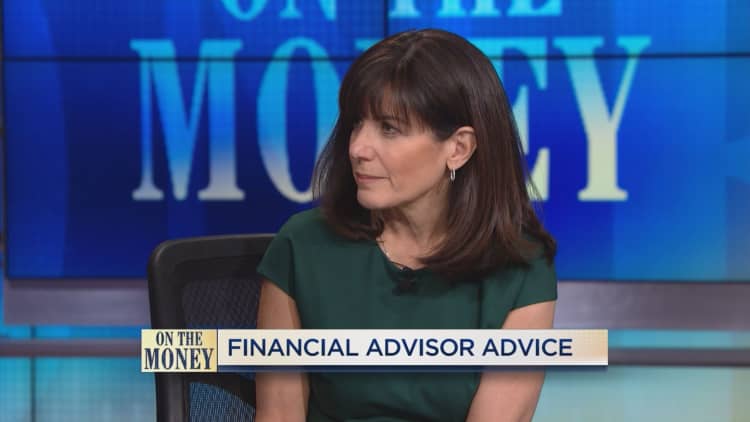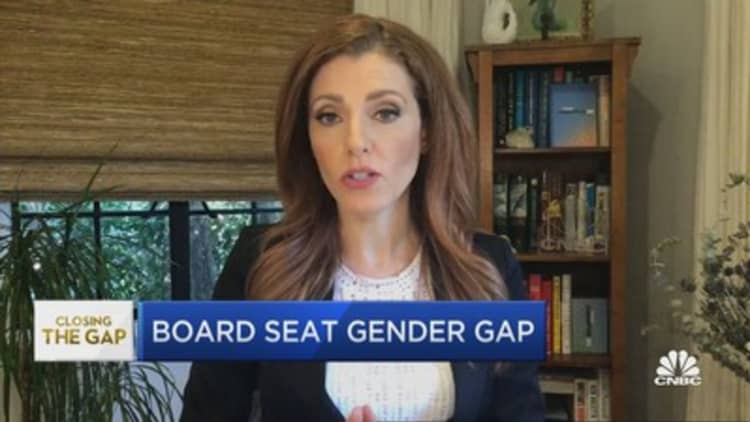Despite setbacks during the pandemic, the financial influence of women in the U.S. only stands to grow in the coming years.
To that point, as more and more women embrace their economic power, they're increasingly tackling the fundamentals of personal finance.
McKinsey projects that by 2030, American women will control the lion's share of $30 trillion in financial assets owned by baby boomers. Fueling this shift — which rivals the U.S. annual gross domestic product in magnitude — is a 30% increase in married women making household financial decisions compared to just five years ago.
Younger women seem even more engaged. According to the Boston Consulting Group, a remarkable 70% of female millennials reported taking the reins for all financial decisions, findings echoed by other recent studies.
More from Personal Finance:
Kamila Elliott, first Black head of the CFP Board, advocates for diversity
Ranks of female, young investors set to grow in next decade
Lack of diversity among financial advisors persists
Women's longevity edge also plays a role. McKinsey estimates that on average, women tend to outlive their male counterparts by five years. But that can be a double-edged sword. Nearly 30% of women's portfolios are positioned in slower-growing assets like cash and bonds (versus just 17% for men), according to BCG. That preference for stability could set women up for a shortfall as they live longer — an even bigger threat now that inflation has reared its head.
So, whether you're already part of this growing movement, or taking the first steps towards educating yourself financially, here's a handy list of five things you need to know.
1. Know your number
To really gain control over your finances, have several figures at your fingertips. The most important by far is spending. How much do you spend now and how much do you foresee spending in the future? While this may sound daunting, a good place to start is understanding your take-home pay and how much of it you spend either monthly or annually. From there, you can derive what you're saving.
Keep in mind, when projecting your future burn rate in retirement, don't assume you'll spend less. Experience shows that between travel, health care and simply living longer, spending doesn't drop off as much as you'd think.
Lastly, know your asset values across all your accounts — not just retirement, checking, and savings — and how you're currently invested. Ideally, keep all this information in one place where you can check in regularly (semiannually or annually). There are a host of online tools and financial aggregators that can help you keep track.

2. Expect the unexpected
No one likes to think about worst-case scenarios like job loss or illness but protecting against them is key. Build a cash reserve to cover six months of expenses (assuming you're still accumulating wealth, as opposed to spending from your portfolio).
Many women already own life insurance, but don't forget about other types of protection like short-term and long-term disability — especially if you're the breadwinner. Believe it or not, the odds of tapping into a disability policy are higher. According to the Social Security Administration, a 20-year-old has a 25% chance of becoming disabled before reaching age 67 compared to a 13% chance of dying.
Even those two policies aren't enough. You might also consider long-term care insurance, and an umbrella policy for property and casualty. And if you purchased insurance more than five years ago, revisit your policies — pricing and product features change.
3. Get your financial house in order
Tidying took off during the pandemic as many women "Marie Kondo'ed" their living space. But what about organizing your financial surroundings? That means knowing the advisors handling your household finances and how to access all your accounts. Since there are likely several, consider using a password management app to keep track of them. Storing this information securely will be critical in your quest to know your numbers.
Next, gather estate-planning documents (trusts, wills, etc.) and understand which come into play when. Check them every three to five years, or when changes occur such as births, deaths, marriage, or divorce — or as external factors such as rising rates, inflation or tax laws evolve. Also develop an eldercare plan and communicate it to your children. HBO's hit show "Succession" is a fabulous reminder of how difficult situations arise and many are not well positioned when parents become incapacitated or sick.
4. Build your dream team
Assemble a team of financial confidantes to be on call as your needs evolve. Engage trusted professionals with whom you feel comfortable and develop a personal relationship with each of them. That's especially important in households that divide and conquer.
Even if only one of you participates in meetings with external advisors, make sure the advisor team resonates with both. In BCG's study, many women expressed dissatisfaction with their current wealth advice, with nearly one-third reporting that their relationship manager addressed them differently because of their gender.
What about one-stop shopping? It may sound convenient, but rarely works in practice. You'll likely need a separate tax professional, attorney (which type depends on your life stage), financial advisor and insurance professional — though they should connect and coordinate seamlessly on your behalf.
And even if you "inherit" a team, you may need changes to make it your own. You have the right to stand up and advocate for yourself, no matter who is sitting across the table.

5. Fund your favorites
No matter how you created your wealth, you're in a place to make decisions that can really be empowering and impactful. For many women, wealth is a means to an end — but what "end" matters most to you? What are your priorities? What makes you happiest?
Making intentional, fulfilling investment decisions starts with exploring your values.
That's why engaging a financial partner who understands your hopes and dreams is one of the best things you can do. Work with someone you can confide in.
Helping children pursue higher education, gifting to a favorite charity, taking a sabbatical or investing for impact may all be within reach. You just need strategic advice from someone who will help you mindfully align your financial decisions with your ideals.
— Beata Kirr, co-head of investment strategies at Bernstein Private Wealth Management




